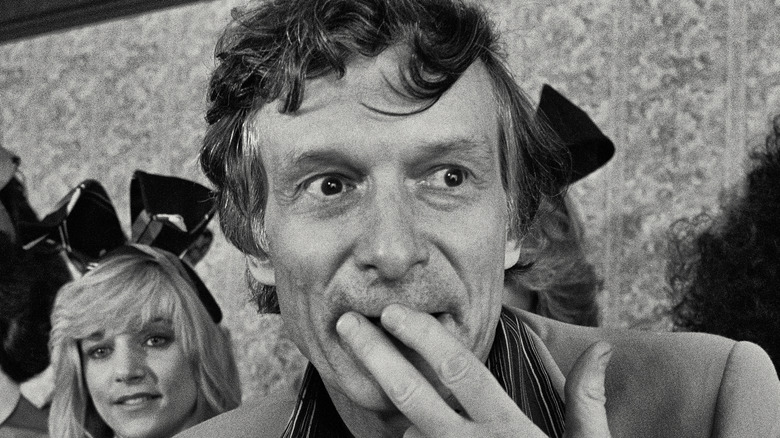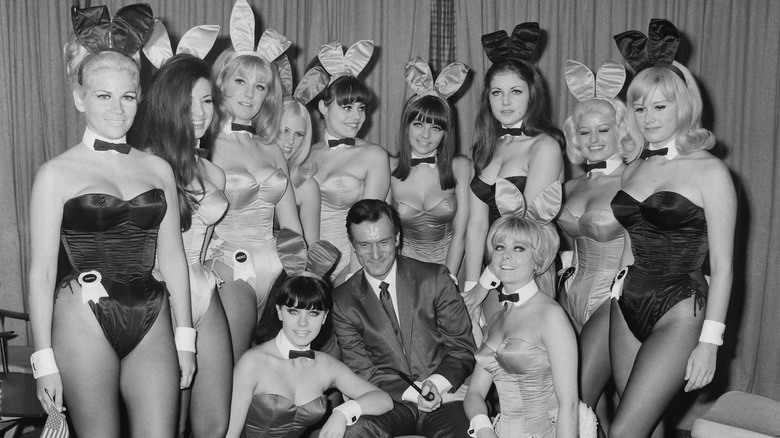Why Hugh Hefner Once Invited A Group Of Sociologists To The Playboy Mansion
After launching in December 1953, Playboy Magazine become astronomically successful. This was due in no small part to a growing segment of the population seeking a more permissive culture about human sexuality, a movement that would one day come to known as the Sexual Revolution, according to Britannica. At the time, those leaning in that direction saw their values reflected in Playboy Magazine's unapologetic celebration of hedonism, and the magazine's founder, Hugh Hefner, quickly became a multimillionaire as a result. It's likely that the larger cultural relevance of his work, and the important part it played in Playboy Magazine's success, were not lost on the publishing magnate.
Supporting this claim, Hugh Hefner graduated with a degree in psychology from the University of Illinois at Urbana-Champaign in 1949, and as a graduate student, he briefly pursued an interest in sociology, particularly the sex-oriented research of Alfred Kinsey, as Biography reports. None of that's to say that the explicit nature of Playboy Magazine was not controversial to many in the conservative 1950s. According to History, the American Sociological Association gathered in Chicago in 1965, where Playboy Magazine was headquartered at that time. Perhaps to prove that he saw his work as a larger social experiment, ultimately for the common good, Hefner invited 20 sociologists to visit the original location of the Playboy Mansion.
To see for themselves
Seeking full transparency, Hugh Hefner opened the doors of the Playboy Mansion to those sociologists, as History reports. He also let the Playboy Bunnies living in the house speak freely with the visitors, who asked them questions about how they were treated working for Playboy and what their feelings really were about posing for explicit photographs in the magazine. Ira L. Weiss was one of the sociologists given a behind-the-scenes look at Playboy. According to his account posted at History, most of the women had career aspirations beyond just the magazine. Most felt working with Playboy or in a Playboy Club would boost opportunities as actresses and other kinds of performers later on.
Hugh Hefner himself appeared during the visit, and through conversation, proved himself to be well aware of contemporary sociological thinking on subjects relating to sex. Overall, Hefner's plan to invite actual sociologists over paid off, at least in the eyes of Weiss, who wrote, "If you had read Playboy's philosophy writings, you would have seen that they supported sexual change in America. Their philosophy favored increasing the range of sexual behavior that Americans accepted as moral. They wanted homosexuality and a wider range of heterosexuality to be accepted ... [T]here was no question in my mind that the sexual behavior and attitudes of Americans was at that moment changing dramatically, and I believed that sexual pluralism would be gradually popularized in our society by these changes" (via History).
The five-part documentary series "Secrets of Playboy" begins streaming January 24 on A&E.

